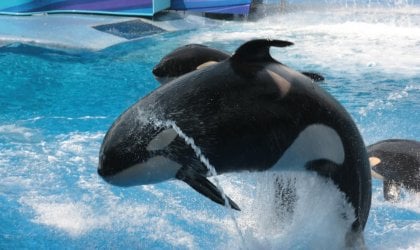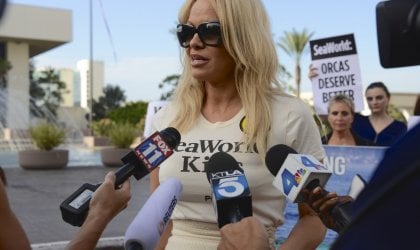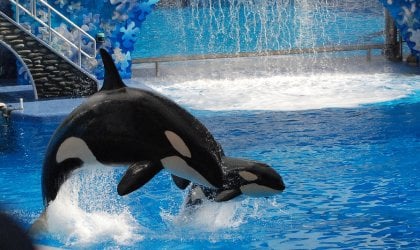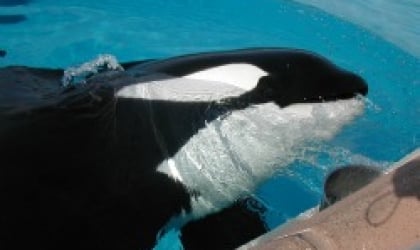After children’s retailer Munchkin’s offer to donate $1 million toward the construction of a coastal sanctuary for captive orcas, PETA offered to match the funds—if SeaWorld agreed to retire all the orcas. And that’s when things started to get a little weird. In response to Munchkin’s and PETA’s offers, a SeaWorld representative told a reporter, “[O]ur position on sea cages is clear. We would not put our whales at risk by moving them into these mythical enclosures. Our whales … need human care to survive. If put in sea cages, these whales would face the same natural and man-made threats of their wild counterparts. They would be exposed to potentially deadly diseases, industrial pollution and oil spills; destructive weather and noise pollution from shipping traffic. It comes down to whether they should be in in [sic] dirty, polluted sea cages or in clean, safe environments.”
Let’s look at how well the orcas at SeaWorld are faring under “human care” in SeaWorld’s mythical “clean, safe environment”: In the last 10 years, seven orcas owned by SeaWorld have died at an average age of younger than 13. Orcas in the wild have an average life expectancy of up to 50 years—and some can live to be more than 100. A recent paper written by two former SeaWorld trainers and published in the journal Marine Mammal Science revealed that the median survival estimate for captive orcas in the U.S. is just 12 years and that 63 percent of whales who’ve died in captivity spent less than six years in tanks before their death.
You’d think that a corporation that has captured orcas, breeds them, confines them to tanks, and pumps them full of drugs to ward off illnesses brought on by the stress of imprisonment would know the difference between a cage (a place of confinement) and a sanctuary (a place of refuge). In seaside sanctuaries, orcas could feel the ocean currents, swim longer distances, and dive to greater depths—the natural behaviors that they are denied. Somehow, free-swimming orca families have learned how to cope without SeaWorld’s “help,” and it’s time that the orcas at SeaWorld have that same opportunity.
Please take a moment today to let SeaWorld know that orcas don’t belong in “cages” or tanks.





